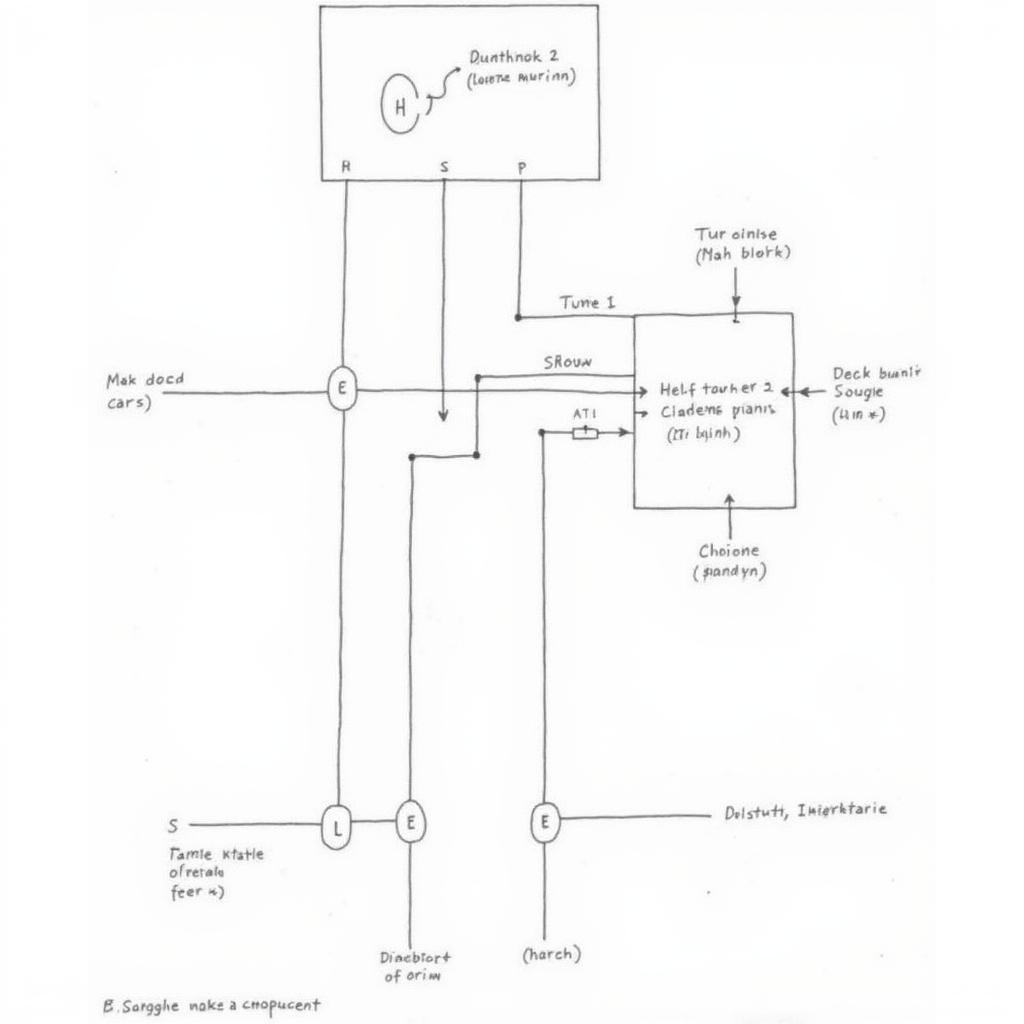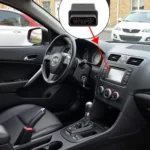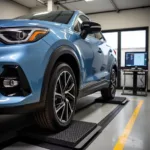Swapping to an OBD2 distributor on your older Honda? You’ve come to the right place. This guide covers the ins and outs of OBD1 to OBD2 Honda distributor conversions, addressing common questions and concerns. Whether you’re a seasoned mechanic or a DIY enthusiast, understanding this process is crucial for optimal engine performance.
Why the Switch? Understanding OBD Systems
Before diving into the specifics, let’s clarify the difference between OBD1 and OBD2 systems. On-Board Diagnostics (OBD) is your car’s way of communicating its health. OBD1, common in early 90s Hondas, uses a simpler system with limited diagnostic capabilities. OBD2, introduced in 1996, offers more precise engine monitoring and standardized diagnostic codes, making troubleshooting a breeze.
Reasons for Converting to an OBD2 Distributor
While OBD1 systems are generally reliable, several reasons might lead you to consider an OBD2 distributor conversion:
- Enhanced Engine Performance: OBD2’s precise control over ignition timing and fuel delivery can translate to improved throttle response, smoother idling, and potentially better fuel economy.
- Simplified Diagnostics: OBD2’s standardized codes and readily available scanners make pinpointing issues much easier compared to deciphering the more cryptic OBD1 codes.
- Emissions Compliance: In some regions, converting to an OBD2 system might be necessary to meet current emissions standards, especially if you’re swapping in a newer engine.
OBD1 to OBD2 Honda Distributor Conversion: What’s Involved?
Converting your Honda from OBD1 to OBD2 involves more than just swapping the distributor. Here’s a breakdown of the key components and considerations:
- Distributor Compatibility: Not all OBD2 distributors are created equal. Ensure you choose a distributor compatible with your specific Honda engine code. Research online forums or consult a trusted mechanic for recommendations.
- Wiring Harness Modifications: The wiring harness connecting your distributor to the ECU (Engine Control Unit) differs between OBD1 and OBD2 systems. You’ll likely need to modify your existing harness or invest in a conversion harness for a plug-and-play solution.
- ECU Compatibility: In some cases, you might need an OBD2-compatible ECU to work harmoniously with your new distributor. This is particularly important if you’re swapping in a newer engine that originally came with an OBD2 system.
- Sensor Calibration: After installation, it’s crucial to calibrate the new distributor’s sensors, such as the crankshaft position sensor and camshaft position sensor, to ensure accurate readings and optimal engine timing.
Common Challenges and Troubleshooting Tips
While relatively straightforward, OBD1 to OBD2 Honda distributor conversions can present challenges, especially for first-timers. Here are some common hurdles and troubleshooting advice:
- Check Engine Light (CEL) Illumination: If the CEL remains illuminated after the conversion, double-check your wiring connections, sensor calibration, and ECU compatibility. Using an OBD2 scanner can help retrieve specific error codes, guiding you toward the root cause.
- Rough Idle or Stalling: This issue often stems from improper sensor calibration or vacuum leaks introduced during the conversion process. Meticulously inspect all vacuum lines and connections, and consider re-calibrating your sensors.
- Lack of Power or Hesitation: If you experience a noticeable decrease in power or engine hesitation, suspect issues with ignition timing or fuel delivery. Ensure your new distributor is correctly timed and that your fuel system is operating within specifications.
Choosing the Right OBD2 Distributor for Your Honda
With numerous options available, selecting the right OBD2 distributor can feel overwhelming. Consider these factors:
- Brand Reputation: Opt for reputable brands known for producing reliable and high-quality distributors. Trusted names in the Honda aftermarket often prioritize quality and performance.
- Application Specificity: Ensure the distributor is explicitly designed for your Honda’s engine code and model year. Using a distributor intended for a different engine can lead to compatibility issues and performance hiccups.
- Price and Value: While budget considerations are valid, avoid compromising quality for the sake of a lower price tag. Investing in a reputable distributor ensures longevity and minimizes the risk of future problems.
Conclusion: A Worthwhile Upgrade for Your Honda
Converting your Honda from an OBD1 to an OBD2 distributor, while involving careful planning and execution, can unlock a range of benefits. From improved engine performance and simplified diagnostics to potential emissions compliance, this upgrade proves valuable for Honda enthusiasts seeking to enhance their driving experience. By understanding the process, addressing potential challenges proactively, and choosing the right components, you can confidently navigate this conversion and enjoy the fruits of a more modern engine management system.
FAQs about OBD1 to OBD2 Honda Distributor Conversions:
Can I convert my OBD1 Honda to OBD2 without changing the distributor?
Converting to a full OBD2 system necessitates changing the distributor. While workarounds might exist, they often lead to complications and don’t deliver the full benefits of a proper conversion.
Is an OBD1 to OBD2 Honda distributor conversion reversible?
Yes, the conversion is typically reversible if you retain your original OBD1 components. However, the process can be labor-intensive, especially if you’ve made significant wiring harness modifications.
Do I need any special tools for an OBD1 to OBD2 Honda distributor conversion?
Beyond basic hand tools, you’ll need an OBD2 scanner for retrieving error codes and potentially a timing light for setting the ignition timing accurately.
Can I perform an OBD1 to OBD2 Honda distributor conversion myself?
If you’re comfortable with automotive wiring and basic mechanical work, DIY conversions are possible. However, for those unfamiliar with such tasks, seeking professional assistance is advisable to avoid potential complications.
What is the approximate cost of an OBD1 to OBD2 Honda distributor conversion?
Costs vary depending on factors like labor rates, component choices, and whether additional modifications are necessary. DIY conversions can range from a few hundred dollars to over a thousand for professional installations.
Where can I find reliable information and support for my OBD1 to OBD2 Honda distributor conversion?
Online forums dedicated to your specific Honda model, reputable mechanics specializing in Hondas, and detailed conversion guides from trusted sources offer invaluable insights and support throughout the process.
Need assistance with your OBD1 to OBD2 Honda distributor conversion? Contact us via WhatsApp: +1(641)206-8880, or email: [email protected]. Our 24/7 customer support team is here to help you every step of the way.


